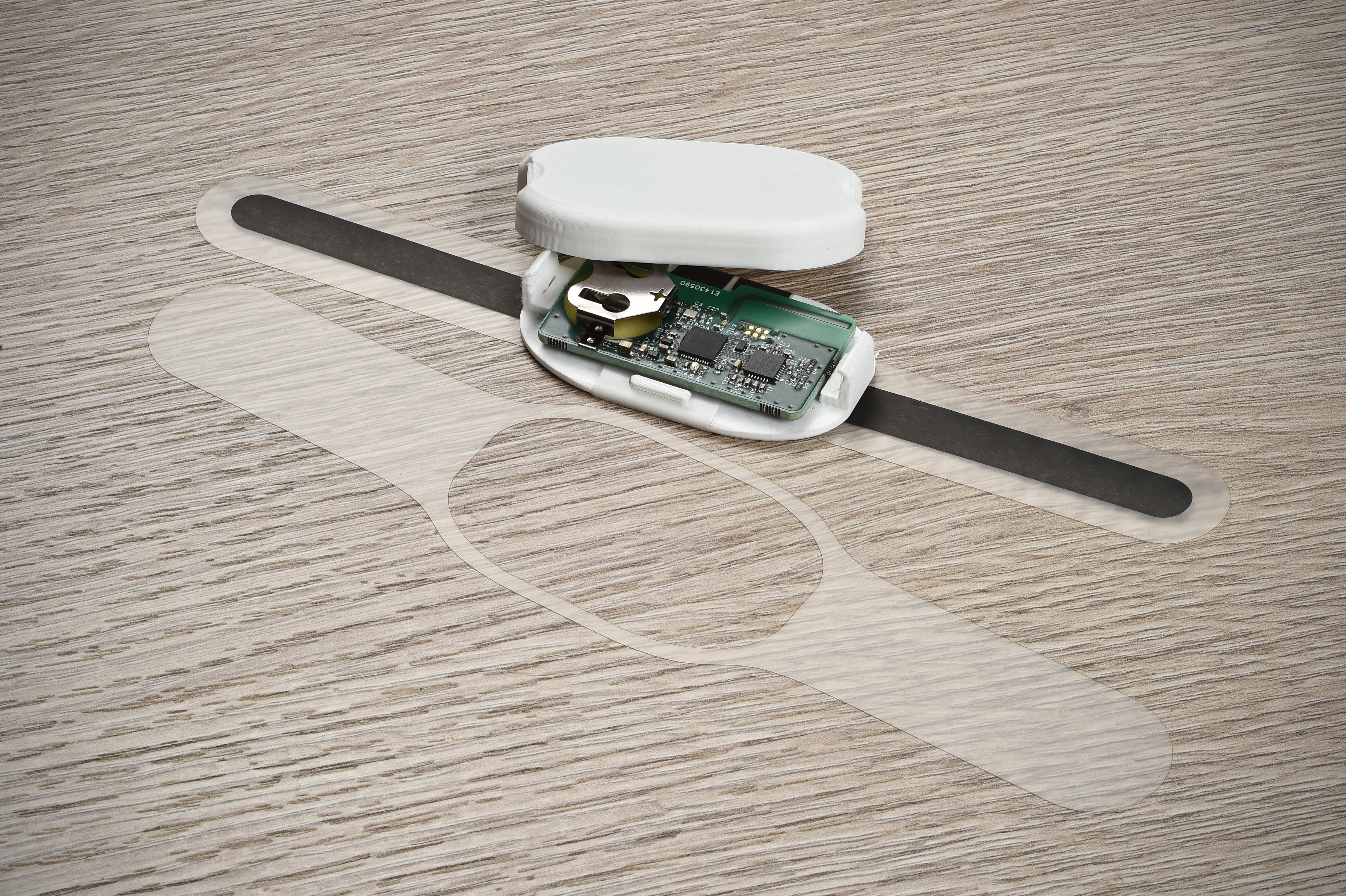VTT has developed a new sustainable electrocardiogram (ECG) patch that is fully recyclable and made of biomaterials. The new nanocellulose and carbon ECG patch aims to reduce the carbon footprint of plastics and electronics for one of the world’s largest waste-producing sectors: healthcare. VTT is currently looking for potential partners to bring manufacturing to industrial scale.
VTT Technical Research Centre of Finland has developed a new sustainable electrocardiogram (ECG, also known as EKG) patch that is fully recyclable and made of biomaterials. The device is modular, so electronic components can be easily removed from the disposable patch and used again. The patch itself is made of nanocellulose and printed with carbon conductors and sensing electrodes. The biodegradable patch is made of VTT’s new material cellulose e-skin, which replaces traditional plastic in wearable skin applications.
An ECG is one of the most established and popular ways to monitor heart condition. It is used to record the heart’s electrical signal to monitor heart health and assess for heart conditions. Currently, ECG patches are composed of electrical components on a substrate made from fossil-based sources.
The global need for sustainable ECG patches is projected to grow rapidly in the next few years. The global ECG patch and Holter monitor market was valued at USD 1.2 billion in 2022, and is expected to expand at a compound annual growth rate of 20% from 2023 to 2030. The growing prevalence of atrial fibrillation, aging, and rising incidence of cardiovascular disorders increasingly drive the market’s demand.
“The healthcare industry has one of the heaviest environmental footprints, and manufacturers are increasingly faced with regulations to make more sustainable products. Bio-based substrates like cellulose e-skin are promising alternatives to fossil-based ones. The tricky part is the fact that they need to possess certain properties like stretchability, tear resistance and moisture sensitivity. We’re proud to say that with cellulose e-skin, we’ve created a new film with huge potential for use in the medical industry,” says Mohammad H. Behfar, Senior Scientist at VTT.

Research Team Leader Vinay Kumar (middle), Senior Scientist Mohammad H. Behfar (left) and Research Scientist Aayush Jaiswal (right) represent the VTT team which has develop the biodegradable ECG patch. Altogether 10 VTT experts have participated in the development work.
Healthcare accounts for 8% of total US emissions and remains one of the largest waste-producing sectors in the world. Plastic is used in medical supplies because it is very inexpensive to source and easy to sterilize. As a result, plastics account for 25% of the waste generated by hospitals. 91% of plastics are not recycled and end up in landfills or nature.
Meanwhile, in 2019, people discarded 53 million tonnes of electronic waste, and the number will increase by 38% by 2030. The rising demand for small and wearable electronics is largely responsible for the issue because many small and complex parts make recycling these items increasingly difficult. Less than 20% gets recycled.
“Ours is the first nanocellulose-based ECG patch with no plastic additives. The wider implications go beyond ECG as cellulose e-skin can be used in a wide array of wearable devices in the future. The film is strong, flexible, transparent, breathable and has good printability. Potential other applications could be, for instance, in printed energy storage and harvesting devices,” says Aayush Jaiswal, Research Scientist at VTT.

Hybrid wearable ECG patch consists of removable and reusable electronics and biodegradable single-use skin patch. The skin patch is made of plant-based materials (i.e. nanocellulose) which degrades in soil and repulps in water through a controlled process for easy recycling. Both the conductors and ECG electrodes, which are visible in the skin patch were realized using carbon ink.
In Europe, a major incentive for creating more sustainable medical products is the European Commission’s Circular Economy Action Plan. It’s one of the main building blocks of the European Green Deal which puts increasing pressure on manufacturers in all industries to create more sustainable products in the face of increased environmental taxation.
VTT is currently looking to team up with partners who are interested in industrial scale manufacturing of sustainable wearable electronics.
Discover more about VTT
VTT is a leading research and technology development organization in Finland, with over 80 years of experience. They provide high-end technology solutions and innovation services to businesses and public organizations. With a multidisciplinary team of over 2,000 experts, VTT’s research and development activities cover a wide range of fields. VTT is committed to advancing technology and promoting sustainable development.
